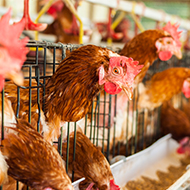Research explores respiratory health of Boston terriers
Researchers say prioritising respiratory function is vital for the welfare of the breed.
New research into the breathing function of Boston terriers has revealed the impact that brachycephaly has on their health.
The brachycephalic obstructive airway syndrome (BOAS) Research Group, based at the University of Cambridge, examined how the risk factors relating to brachycephalic (flat-faced) breeds could lead to the development of respiratory disease.
The study revealed that, while the breed is affected by BOAS, Boston terriers were less severely affected than other popular brachycephalic breeds. Research into the breed revealed that 62.5 per cent of Boston terriers were unaffected by BOAS.
The key risk factors for BOAS which were identified in Boston terriers included stenotic nostrils, facial foreshortening, abnormal scleral show and a higher neck-to-girth ratio.
Despite finding that Boston terriers were less severely affected by BOAS, researchers say their findings highlight the importance of responsible breeding of dogs. They state that prioritising better respiratory function and avoiding extreme conformational traits is vital for protecting the welfare of the breed.
Similarly, the action group is asking that prospective pet owners consider the animal’s health over its appearance.
The project was funded by The Kennel Club Charitable Trust, as the Kennel Club seeks to develop its resources. This includes Breed Watch, a Respiratory Function Grading Scheme, and Breed Health and Conservation Plans.
The Kennel Club says that its Breed Health and Conservation Plans, developed from over 4,000 research papers, makes the project the most comprehensive review of pedigree health data anywhere in the world.
Charlotte McNamara, head of health at The Kennel Club, said: “While breeders now have more information to make healthier breeding decisions, we also urge prospective owners to prioritise health over appearance when choosing a dog.
“Decisions should not be driven by celebrity trends or social media influence but by finding breeders who use the health tools available and prioritise non-exaggerated features, ensuring that health comes first, as described in the breed standard.”
The full study can be found in the journal Plos One.
Image © Shutterstock



 An Avian Influenza Prevention Zone (AIPZ) has been introduced across Wales.
An Avian Influenza Prevention Zone (AIPZ) has been introduced across Wales.